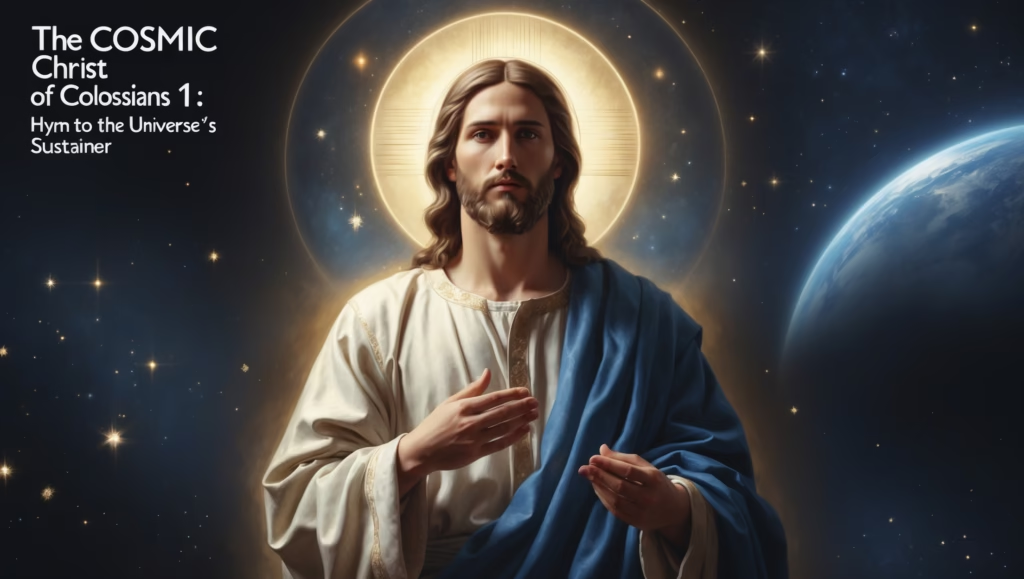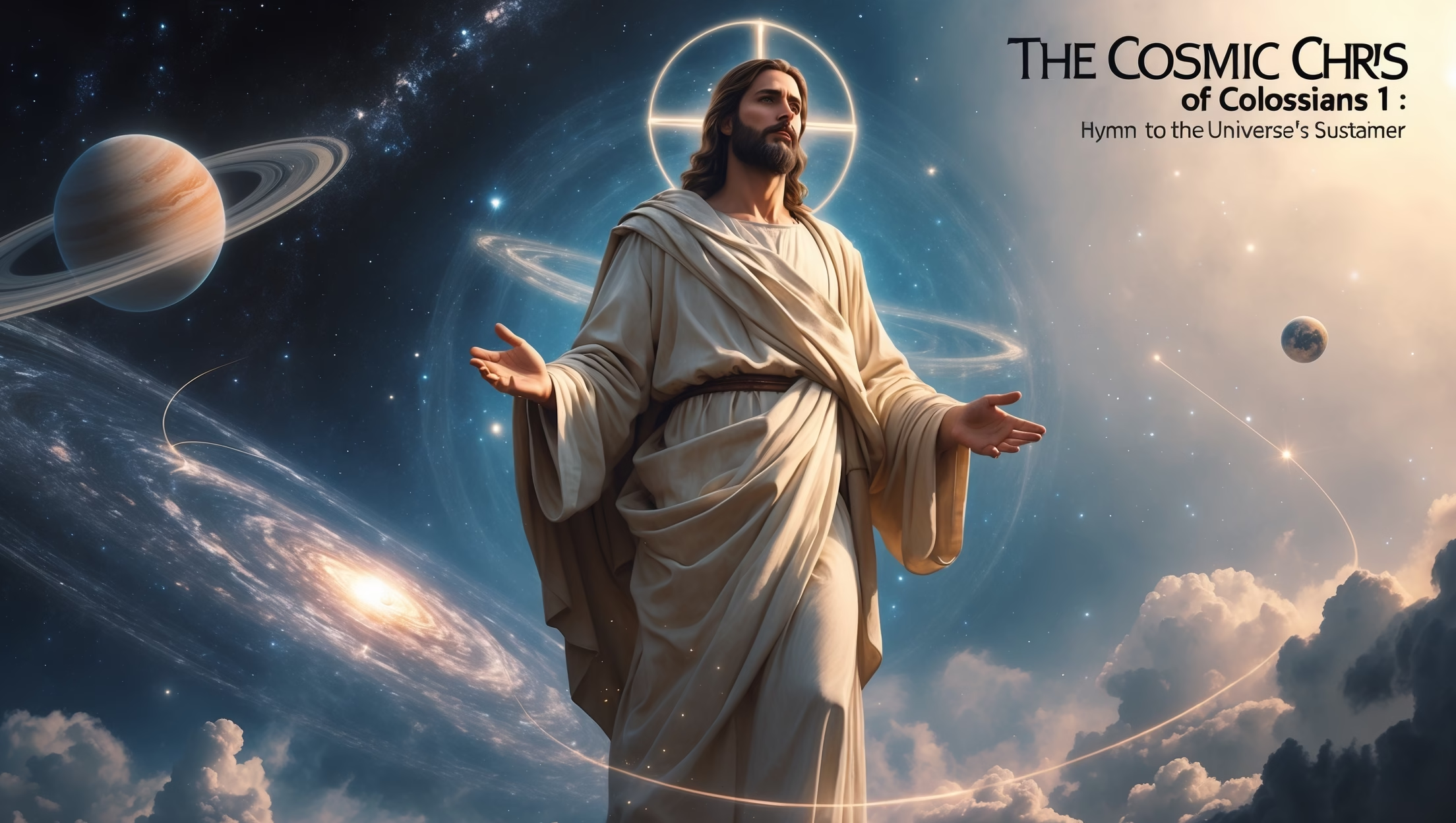Paul’s letter to the Colossians presents one of the most majestic portraits of Jesus in Scripture: Christ as the cosmic Lord. Beyond historical biography, Paul emphasizes that Jesus is the sustainer of all creation, the reconciler of all things, and the head of the church. This passage invites us to see Christ not only as a historical figure but as the axis of the entire universe.
Christ and Creation: The Invisible Glue of Reality
“He is before all things, and in him all things hold together.” (Colossians 1:17)
Paul portrays Christ as the sustaining force of the cosmos. Every star, planet, and living creature depends on Him—not as a detached overseer, but as the active source of life and order. Modern readers may see echoes in quantum physics or the study of forces that hold matter together, but Paul’s emphasis is theological: Christ is the unseen force that unites and maintains all things.
- Immanence and transcendence: He pervades the universe yet reigns above it.
- Cosmic significance: Creation is not random; it is purposeful and sustained.

Christ and Redemption: Reconciling a Fractured World
“…and through him to reconcile to himself all things, whether things on earth or things in heaven, by making peace through his blood, shed on the cross.” (Colossians 1:20)
The cross is cosmic in scope. Paul’s language extends salvation beyond humanity to the entire created order. Just as the world groans under corruption (Romans 8:22), Christ’s redemptive work promises renewal for both humanity and creation itself. Contemporary theology often interprets this through eco-theology, seeing Christ as the agent who restores harmony to all life.
- Redemptive reach: Salvation is not merely personal but cosmic.
- Ethical implication: Caring for creation participates in Christ’s reconciling work.
Christ and the Church: Head of the Body
Paul shifts from cosmic scope to the intimate community of believers:
- Head of the church: Christ directs, nourishes, and unites.
- Firstborn from the dead: Pioneer of resurrection and eternal life.
- Preeminence in all things: Establishes both ethical and spiritual order.
Believers are invited to participate in cosmic and communal worship simultaneously—acknowledging Christ’s supremacy while living out practical faith.
Modern Reflections
- Science and theology: Christ as the sustaining force resonates with modern understandings of order and interconnectedness.
- Ethics: Cosmic Christology emphasizes responsibility—human actions impact creation spiritually and materially.
- Spirituality: Worshiping Christ invites awe, obedience, and hope for renewal of all things.








